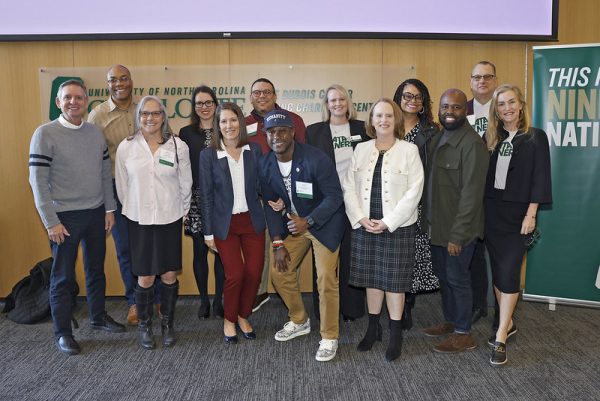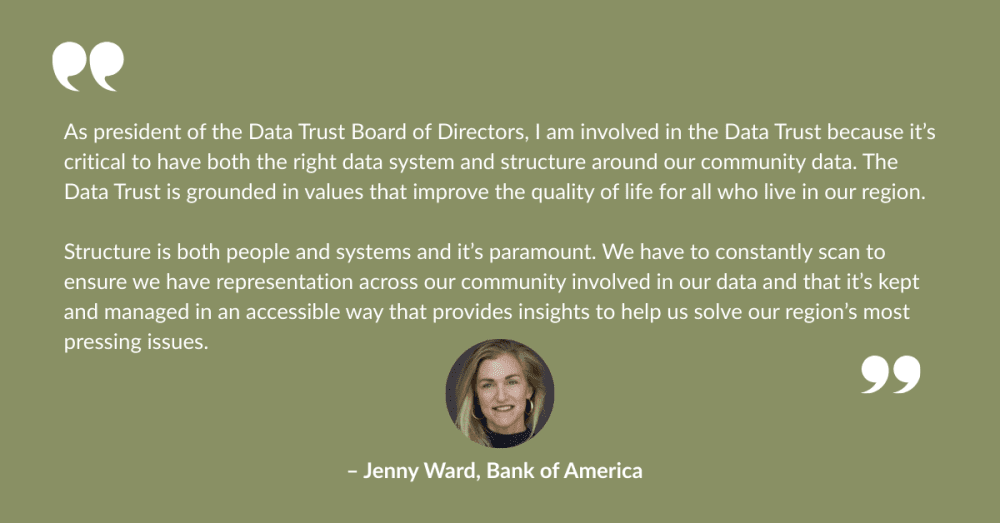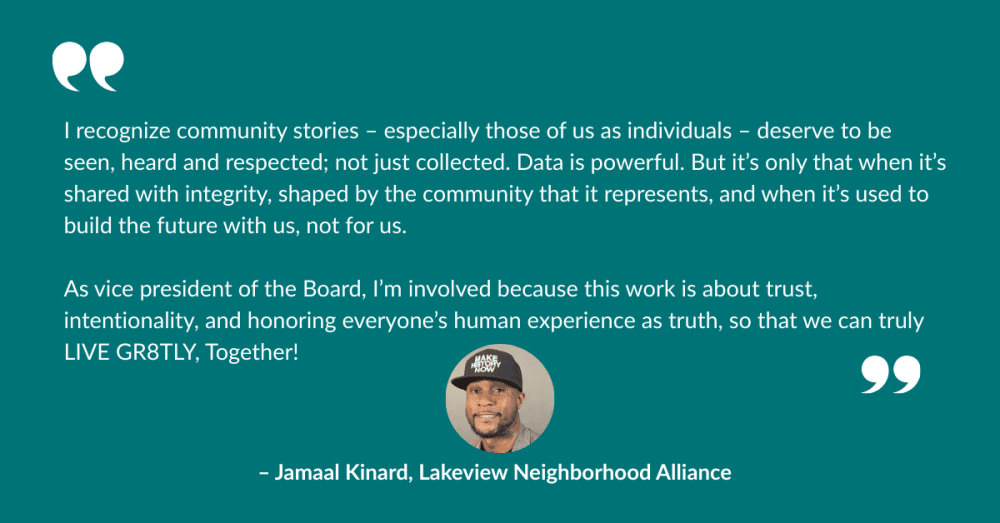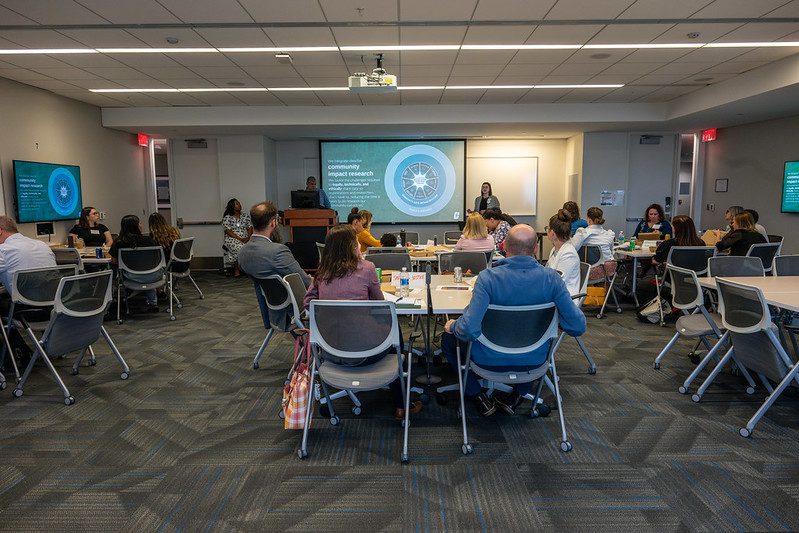Unlock the power of administrative data for public good

By: Sydney Idzikowski, Jamaal Kinard, Lori Thomas, Ph.D., and Jenny Ward
At the Charlotte Regional Data Trust (Data Trust), the data we hold in trust are about people and their lives.
These data can play a role in understanding challenges and informing solutions in an increasingly complex world. Addressing pervasive social challenges such as poverty, housing instability, and health disparities requires a holistic understanding that transcends the doors of individual agencies. This is precisely what the Data Trust is designed to do.
The Data Trust is a community-university partnership, built as a nonprofit organization, housed at the UNC Charlotte Urban Institute to bridge fragmented administrative data. We do this while prioritizing ethical data use and equipping changemakers such as researchers, policymakers, practitioners, and community leaders to develop more effective, collaborative solutions to community challenges.


Administrative data is the information collected by agencies during their routine operations, such as school enrollment and academic performance, enrollment in public benefits, and participation in a program or service. Created for day-to-day service delivery, this data typically remains within individual agencies, despite the interconnected nature of the issues they aim to address. When linked across agencies, however, it can provide a more holistic understanding of community services, challenges, and the effectiveness of our solutions.
For good reason, data can get trapped inside agencies. It takes immense effort, planning, and trust to share data ethically. Agencies must navigate privacy concerns, legal agreements, and secure technologies. It’s not often feasible for them or researchers to do this work alone. Our role at the Data Trust is to navigate the complexities of sharing and linking data ethically and securely so it can be used for community benefit.
Where we started and where we’re going
Established in 2004 as the Institute for Social Capital (ISC), the Data Trust was founded by Charlotte-Mecklenburg stakeholders, including Mecklenburg County, Charlotte-Mecklenburg Schools, United Way of the Charlotte Region, the Foundation for the Carolinas, and UNC Charlotte. Their goal was to understand how families and children were being served across programs in our community. The name was changed in 2022 from the ISC to the Charlotte Regional Data Trust to reflect its central role as a trusted third-party entity for vital information.
The early years of the Data Trust were dedicated to meticulously crafting the legal framework for secure and ethical data sharing. This foundational legal work set up the Data Trust to be a national leader in demonstrating a steadfast commitment to privacy and community governance of a shared resource. In 2011, the Data Trust moved within the UNC Charlotte Urban Institute (Institute), further strengthening its research capabilities within an academic environment committed to applied, community-engaged research. Since joining the Institute, the Data Trust has expanded data sharing partnerships with a wide array of agencies, including partners in affordable housing, health care, education, and services for adults.

In the future, the Data Trust will continue to grow data sharing partnerships throughout the region and create pathways for our partners and other researchers to use the data for impact. Our new technology, made possible by community investments, has also enabled the Data Trust to hold and link other types of data, including environmental data and the data used to create the Charlotte-Mecklenburg Quality of Life Explorer and the forthcoming Carolinas Regional Explorer.
How we work
So, what does this look like?
While not initially collected for research, the Data Trust repurposes administrative data for research, evaluation, and planning. We:
- Develop and maintain partnerships with the agencies that collect the data;
- Complete legal agreements between the agency and the Data Trust so the data can be shared in compliance with federal and state privacy regulations;
- Securely bring the data into the data trust, link it, and de-identify it;
- Provide deidentified datasets to researchers who request to use it and are approved by our Board of Directors to use;
- Monitor the ongoing ethical use of the data;
- And ensure what we learn from the data is shared back to data partners and our community, and specifically to the people whose lives are represented in the data.
We use a participatory data governance model built around our board of directors and our committees to guide this work. Participatory data governance means that multiple stakeholders – including the agencies that collect the data, the stakeholders who use it, and the people who are represented in it – are involved in decision-making about the data we hold. That includes how it can be used in research, how it is managed, and the security and privacy of the data. This emphasis on participation in governance is a cornerstone of the Data Trust.
The Charlotte Regional Data Trust is not merely a repository of information; it is an engine for understanding, collaboration, and positive change, driven by our commitment to build trust.
How to get involved

Want to learn more or get involved? Get in touch at DataTrust@charlotte.edu and start exploring the resources below:
- Data Partners & Data Documentation: provides an overview of the partners who regularly share sensitive data with us, as well as codebooks for each regularly deposited data set.
- Learn how to request data
- Become a data partner! Contact DataTrust@charlotte.edu.
- View the 2024 State of our Data Report. This annual report highlights who is represented in the data, how people in the data are linked, and other milestones from the Institute + Data Trust.
Google Gemini AI was used to create an early draft of article themes.